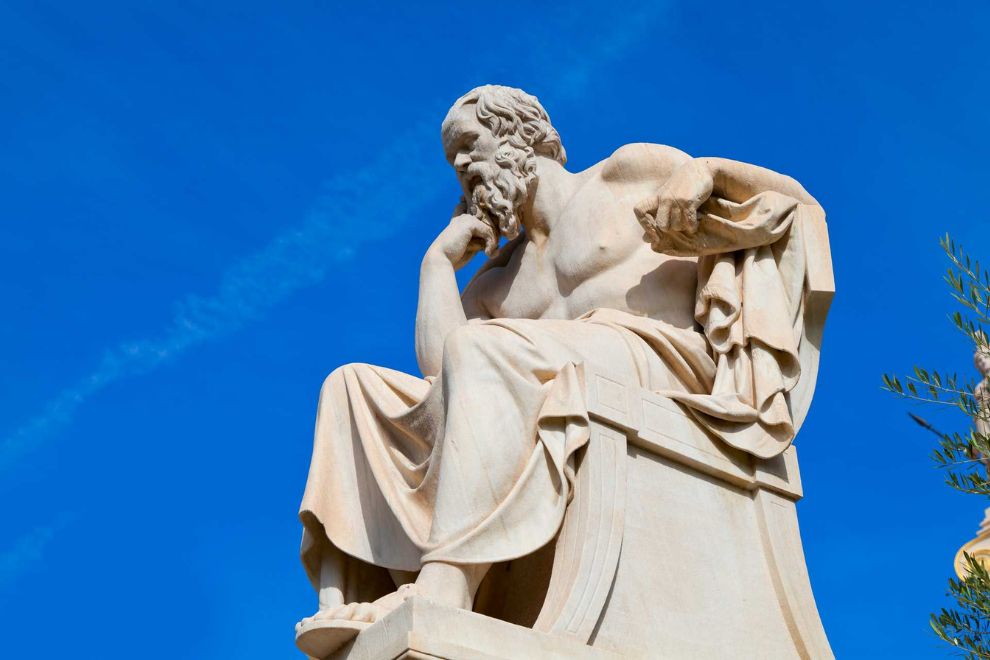
Socrates: Life, Teachings, and Famous Quotes
Introduction
Socrates (469–399 BCE) is considered the father of Western philosophy. A towering figure in ancient Greek history, he never wrote any books. Instead, his ideas and teachings were passed down through the works of his students, especially Plato. Socrates laid the foundation for ethical thinking, logical inquiry, and critical questioning—principles that remain at the core of modern philosophy.
Early Life and Background
Socrates was born in Athens, Greece, around 469 BCE. He served as a soldier and later became known not for his appearance or profession, but for his powerful mind and revolutionary ideas. Unlike the Sophists of his time who charged fees, Socrates offered his wisdom freely in the streets and marketplaces of Athens, challenging citizens to think deeply about virtue, justice, and the good life.
Philosophical Beliefs
Socrates is best known for the Socratic Method—a form of cooperative dialogue that involves asking and answering questions to stimulate critical thinking and expose contradictions. His central belief was that “the unexamined life is not worth living.” He focused on moral philosophy, emphasizing that knowledge leads to virtue and that ignorance is the root of evil.
Top 20 Most Powerful Socrates Quotes
- “The only true wisdom is in knowing you know nothing.”
- “An unexamined life is not worth living.”
- “To find yourself, think for yourself.”
- “I cannot teach anybody anything. I can only make them think.”
- “He who is not contented with what he has would not be contented with what he would like to have.”
- “Strong minds discuss ideas, average minds discuss events, weak minds discuss people.”
- “Beware the barrenness of a busy life.”
- “The greatest way to live with honor in this world is to be what we pretend to be.”
- “Wonder is the beginning of wisdom.”
- “Let him who would move the world first move himself.”
- “Be slow to fall into friendship, but when you are in, continue firm and constant.”
- “True wisdom comes to each of us when we realize how little we understand about life, ourselves, and the world around us.”
- “Education is the kindling of a flame, not the filling of a vessel.”
- “Do not do to others what angers you if done to you by others.”
- “Contentment is natural wealth, luxury is artificial poverty.”
- “Prefer knowledge to wealth, for the one is transitory, the other perpetual.”
- “Death may be the greatest of all human blessings.”
- “The secret of change is to focus all your energy not on fighting the old, but on building the new.”
- “Every action has its pleasures and its price.”
- “The mind is everything; what you think, you become.”
Trial and Death
Socrates’ radical ideas and methods earned him enemies. In 399 BCE, he was tried for corrupting the youth of Athens and impiety. Refusing to renounce his beliefs, he was sentenced to death by drinking a cup of poison hemlock. His courageous stance in the face of death cemented his legacy as a martyr for truth and wisdom.
Legacy
Socrates’ influence on Western civilization is unmatched. His teachings inspired Plato, whose writings preserved Socratic thought and shaped Aristotle, and, by extension, the entire foundation of Western philosophy and logic. Even today, educators, philosophers, and critical thinkers use the Socratic method in law, ethics, and debate.
Final Thoughts
Socrates taught the world how to question, how to think, and how to seek truth within ourselves. His enduring wisdom reminds us that self-awareness and critical thinking are essential to a meaningful life. His quotes continue to resonate, offering guidance in both personal and societal challenges.
